Epic fail? Interrogating cinema’s history problem
Christopher Nolan is set to tackle Homer’s epic on the big screen but one academic says the film will only succeed if it adheres to one theme.
Rome: first century AD, the republic is gone and with it the people’s influence in who governs them. Lavish gladiatorial games are staged and grain allowances are doled out from emperors to the people as ostentatious displays of power and generosity.
This is the world into which Roman poet Juvenal infamously wrote “the mob that used to grant power, high office, the legions, everything, curtails its desires, and reveals its anxiety for two things only, bread and circuses”.
It is perhaps the height of irony, then, that almost 2000 years later a brace of films about gladiators in the Colosseum ended up falling perfectly into the bread-and-circuses category. But Ridley Scott’s high-octane if historically flawed Gladiator (2000) and Gladiator II (2024) are representative of a deeper issue at play in Hollywood: the film industry’s apparent inability to meaningfully tackle its depictions of the ancient world.
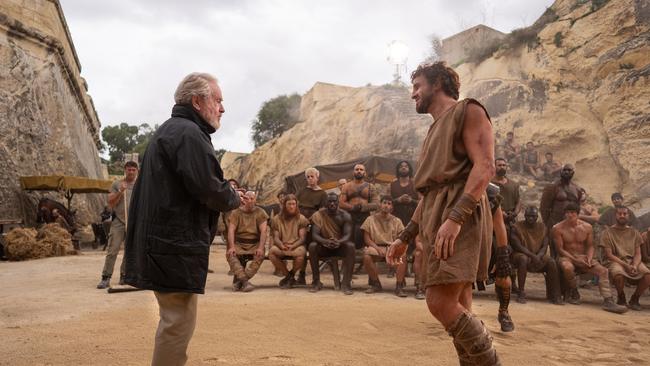
Scott’s films have been criticised for historical inaccuracies (sharks in the colosseum?) and in the most recent iteration for failing to deliver with the actual story, while modern adaptations of ancient talesin300 (2006), Hercules (2014) and Troy (2004) have been widely derided for mutating their classic sources into little better than gory pantomimes.
Ancient history and classics professor at the University of Sydney Ben Brown says that while the historical accuracy question will always be a point of contention in academic circles, he is surprised by how infrequently film directors turn to antiquity for inspiration.
“All of Roman history is just loaded full of fantastic stories of epic grandeur that (modern) cinema seems to steer well clear of,” he says. “In fact, more often than not, cinema will simply make up something completely fake – like in Gladiator and the Gladiator sequel … it ends up descending into a sort of Game of Thrones kind of logic.”
Brown says there are two major problems plaguing Hollywood’s adaptations of history.
Firstly, the inherent nature of these ancient stories provides filmmakers with an unsolvable problem – they’re already largely so foreign to modern audiences that to play into them is to risk bordering on ridiculousness and to tell them straight is to risk falling flat and lifeless, he says.
Secondly, the archetypes and themes of these ancient stories have been developed and deepened over many retellings by some of the most prolific storytellers of their times over the course of hundreds, and in some cases thousands, of years.
Trying to capture that in a two-hour feature is a feat very few filmmakers are ambitious (or foolish) enough to attempt.
Which brings us to Christopher Nolan’s Christmas Eve announcement that his next movie will be an adaptation of Homer’s epic The Odyssey.
The Odyssey is one of two Ancient Greek epics commonly ascribed to the blind poet Homer (the other being the Iliad). First committed to writing around 750-650BC, The Odyssey tells the tale of the wily hero Odysseus and his homecoming adventures after his infamous Trojan horse trick.
Brown has made a career out of studying Homer’s works – he has lectured across some of Australia’s best universities and his latest book, The Mirror of Epic, is a deep dive into the world of Homer. Although greatly interested by Nolan’s announcement, Brown remains sceptical about the form it will take.
“The Odyssey is very, very hard to do for cinema,” he says. “In fact most directors and screenwriters who have been attracted to The Odyssey tend to take it as a theme, and then plant it in something else, like the Coen brothers with O Brother, Where Art Thou? or Francis Ford Coppola’s Apocalypse Now.”
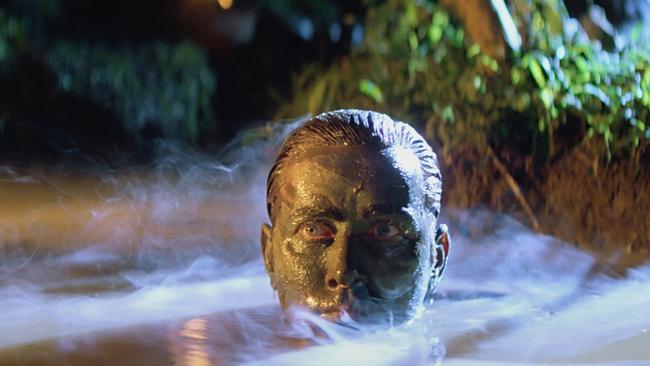
One recent adaptation of the ancient Greek classic gaining notoriety is The Return, directed by Uberto Pasolini and released on March 20. The story takes only the final third of the original epic, focusing on Odysseus’ homecoming and confrontation of his wife Penelope’s suitors. The Return stars Ralph Fiennes and Juliette Binoche and offers a fascinating comparison point to how Nolan might depict the wily hero.
“I’m not saying for one minute the cinema version of the Odyssey is impossible. But in order for it to be enduring, in order for it to be something that doesn’t just enter the dustbin of history in 20 years’ time, you need to have a sense of the pathos of the story and it needs to be about homecoming. It needs to be about nostalgia. It needs to be about what is it that makes me into who I am?”
Nolan’s adaptation reportedly will star Matt Damon, Tom Holland, Zendaya, Robert Pattinson, Lupita Nyong’o, Anne Hathaway and Charlize Theron and although who the characters each will be playing has not been publicly released the assumption is that as the only middle-aged man listed, Damon will be taking the central role of Odysseus. It’s a casting The Australian’s film critic Stephen Romei believes will test Damon.
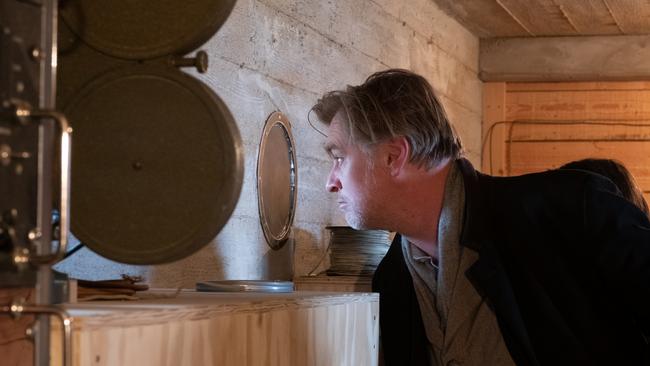
“(Damon’s) got his work cut out for him. I think he’s a good actor but the casting raises a lot of interesting questions as to what sort of Odysseus they’ll be going with. I think it’ll be stretching Matt Damon but who knows? Maybe he’ll enjoy being stretched,” he says. “We won’t know until we see it of course. There are other actors who’ve worked with Nolan – Tom Hardy and Christian Bale, for example – who I’d choose ahead of Damon but he’s the Oscar-winning director so I reckon his opinion counts more than mine!
“The blood-soaked, kill-them-all scenes of The Odyssey are more in Quentin Tarantino’s wheelhouse than Christopher Nolan’s, so it will be interesting to see how far he is prepared to go.”
Brown believes that the difference between an effective and “bread and circuses” adaptation lies in the questions that it poses, Oliver Stone’s 2004 Alexander the Great adaptation and Wolfgang Peterson’s Troy of the same year provide the perfect example of this divide.
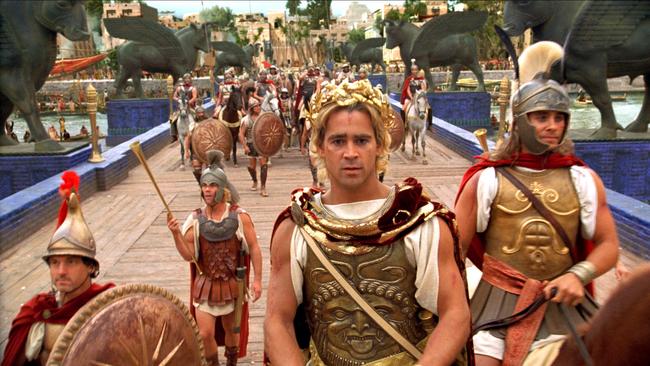
“Oliver Stone tackled Alexander through ancient biography (Plutarch), like Shakespeare with Caesar and Antony. That meant Stone was interested in questions about the human condition posed by antiquity rather than by modernity, questions such as the tragic relationship between power and mortality, power and human relationships, and so on,” Brown says.
“The authenticity of Stone’s Alexander did not come from realism and CGI, but from looking at being human through the lens of Greek thought. This is why audiences didn’t ‘get’ it. Troy failed precisely in this respect. By modernising the epic, trying to do the whole Troy story (instead of understanding that the Iliad is not really about the Trojan War) and stripping out the tragic dimension we were left with an anodyne retelling that lacked the pathos of Homeric Epic Iliad.”
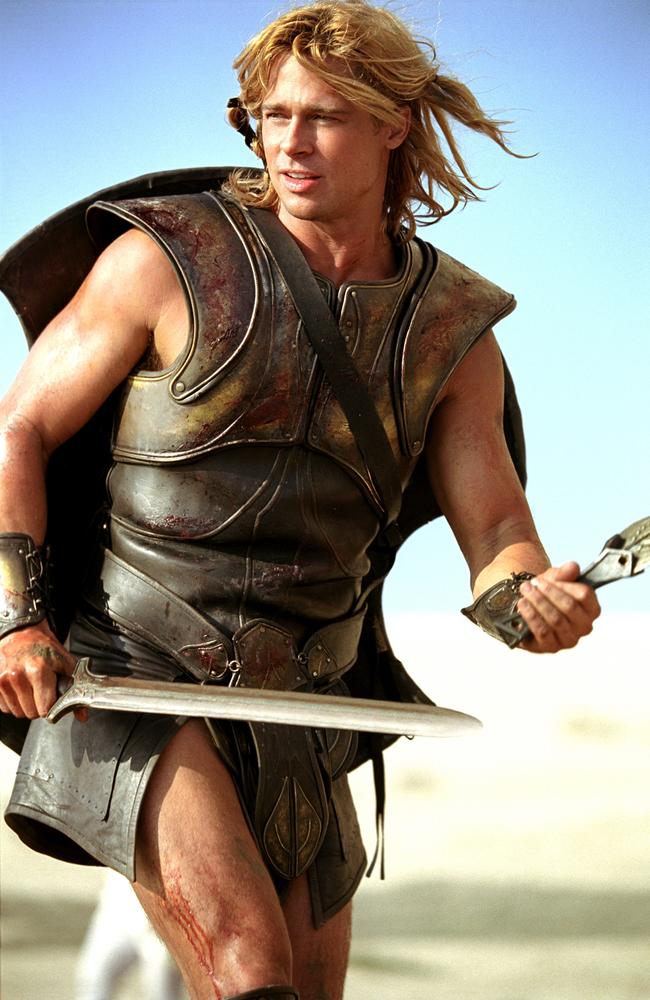
Romei argues the difficulty for Nolan will not be so much in reinterpreting the history itself but rather the filming.
“Nolan … famously doesn’t like CGI. So how is he going to make this film where a man travels around all these strange places by ship and meets all of these strange creatures like the cyclops, like the six-headed sea monster? Without using CGI that would be really interesting. For example, the great scene in Oppenheimer where they do the test with the first Atomic bomb was not CGI. They did that using various kinds of special effect techniques essentially by making little explosions that weren’t done via a computer graphic but were done in the real world, and filled it that way. So it’ll be interesting to see how he tackles it visually.”
It’s worth noting that despite the critical panning of many ancient adaptations, from a box office perspective there is little to complain about. 300, Troy and Gladiator I all pulled in more than $450m internationally, raising the question – do audiences even care?
Brown believes the guiding principles that go into making these films determine the kind of adaptation they will be.
“Audiences don’t really have the frame of reference to know whether a film is authentic. But then we need to think carefully about what authenticity in representation really is. Audiences can, however, feel authenticity and want to be moved. The sugar hit they get from good defeating evil typical of the Marvel script doesn’t last long. But genuine social and moral dilemmas, which lead to error, suffering but also redemption, linger with audiences and can provoke them.
“This began with Greek drama. But does it sell? Greek drama and the questions it asks were not driven by commercial demand in an entertainment marketplace. So long as film is activated by this, we will have to watch the cinematic equivalent of Fanta for the foreseeable future.”
The Odyssey, procured by Universal Pictures, will be released in July 2026. The Return is in cinemas nationally.

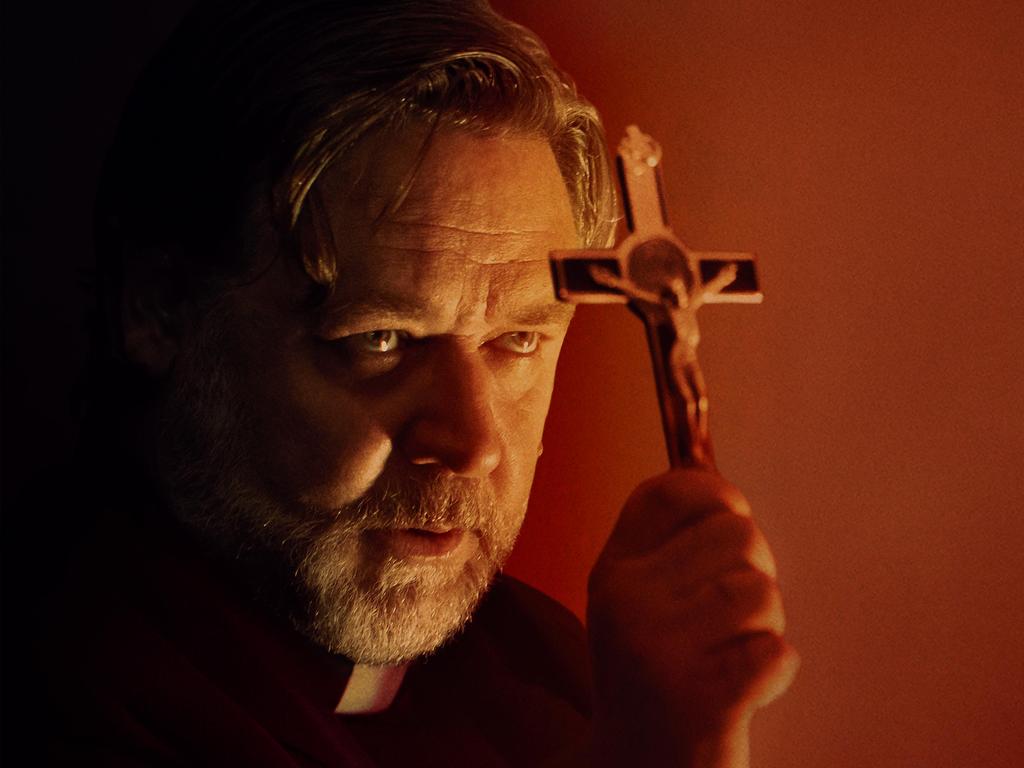

To join the conversation, please log in. Don't have an account? Register
Join the conversation, you are commenting as Logout